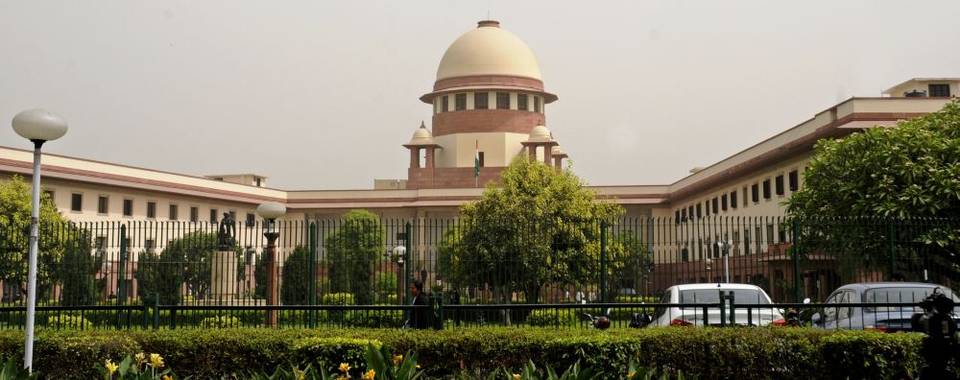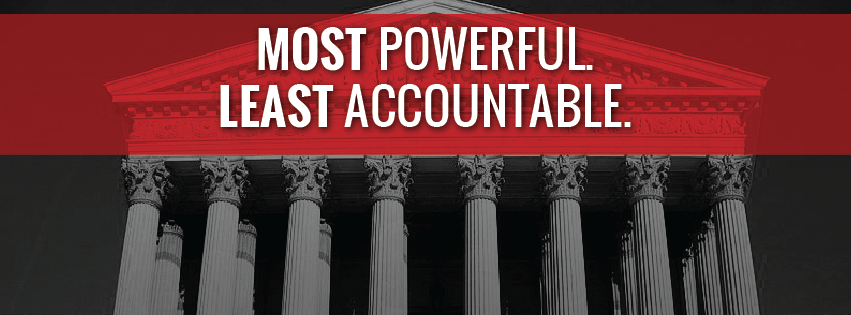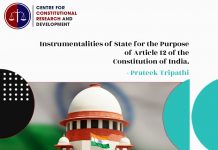One of the most burning questions pertaining to the Judicial system is- Who will judges the judges? How are the judges responsible for the judgments that they give, are they even responsible at all? Well, the answer is yes. The term given to this responsibility is Judicial accountability.
Along with the Legislature and the Executive, Judiciary forms the skeleton of a state. It has the onus of performing its job with sincerity, prudence, and sagacity and to pass judgments with care and caution which caters to the needs of the society providing justice to the aggrieved. But what recourse would the aggrieved have if the person on whom the lives of those aggrieved depended was not competent or has resorted to such means which are unconstitutional and not congenial to the interests of the people. This is where the concept of Judicial accountability comes into force. It says that since the judges are the ombudsman of the people, there should be a check on their powers to make sure that they don’t enjoy Carte Blanche’s powers.
In order to make sure that this doesn’t happen, Article 124(4) and 124(5) provides for the removal of the Judges on the grounds of misbehaviour or incapacity. Article 124(4) lays down the following provision-
“A Judge cannot be removed from his office except by an order of the president which is passed after an address by each house of the parliament supported by a majority of the total membership of that House and by a majority of not less than two-thirds of the members of that House present and voting has been presented to the President in the same session for such removal on the ground of proved misbehaviour or incapacity”.
Article 124(5) on the other hand enunciates the two grounds on which a Judge can be removed which includes misbehaviour and incapacity.
One of the visible shortcomings of this process is the tedious and long process that takes to get a judge removed from his post. There have to be rigorous investigations into the matter after which the power to decide whether the accused judge’s activity comes under the sphere of misbehaviour or incapacity is vested with the Parliament. The judge is removed if 2/3rd of the majority votes of each house against him. It has been observed that the members of the Parliament don’t choose the path of removing judges because almost all of them have a plethora of cases that are pending under the same judges in the court which prevents them from taking any action against these judges even though their guilt is conspicuous. It is evident from this that the removal of a judge in India is not a facile process and that it has to go through several layers before the Judge is adjudged liable.
Another flaw in this whole process is that a Judge can be removed only on the two ground mentioned before. But what if he commits some other misdemeanours? Is there any provision in the Constitution to deal with these situations? Unfortunately, the answer to this question is negative. Thus, a Judge can commit any act which might not come within the gamut of the two grounds mentioned in Article 124(5) and get away with it which is a setback to the Judicial system of this country as these incompetent judges shouldn’t be allowed to adjudge others when they themselves have committed a wrong. Moreover, they shouldn’t be allowed to run the country which wholly depends on their prudence. What use would these judges be if they renounce this prudence? The people of this country base their hopes on the Judicial system which they consider sacrosanct with the aspirations that it would impart justice to them sooner or later. But if the vanguards of the public are themselves incompetent, how are they going to perform the job of protecting the interests of the people which only a person with moral uprightness can perform.
Another impediment in the way of removal of judges is the contempt charges which the court can impose on anyone who tries to publicly reveal the wrongs if any committed by a judge. The court can punish such a person under the Contempt of Courts Act, 1971 which shouldn’t be the case in a democracy like India where people are vested with fundamental right to free speech under Article 19. Ironically, the courts who should be protecting this right are the ones who are infringing it by punishing innocent people under the Contempt of Courts Act even though what the public is doing is trying to reveal the identities of the Judges who shouldn’t be enjoying the benefits of a Judge.
In order to hold to improve the process of holding Judges accountable, the absolute power wielded by these judges to punish a person under contempt even though all he’s doing is pointing to the guilt and incompetence of the Judges. This is not to say that those who defame and throw dirt at the Judicial system unnecessarily without reasonable cause should be allowed to get away with it. Another thing which can be done is the establishment of different committees who will have a check on the activities of the Judges preventing them to commit various wrongs. Their income, assets and other resources should be made public to thwart their intention of getting involved in corruption. These steps may prove to be the kryptonite of the Judges of the category who are involved in activities not congenial to the interests of the public.
















